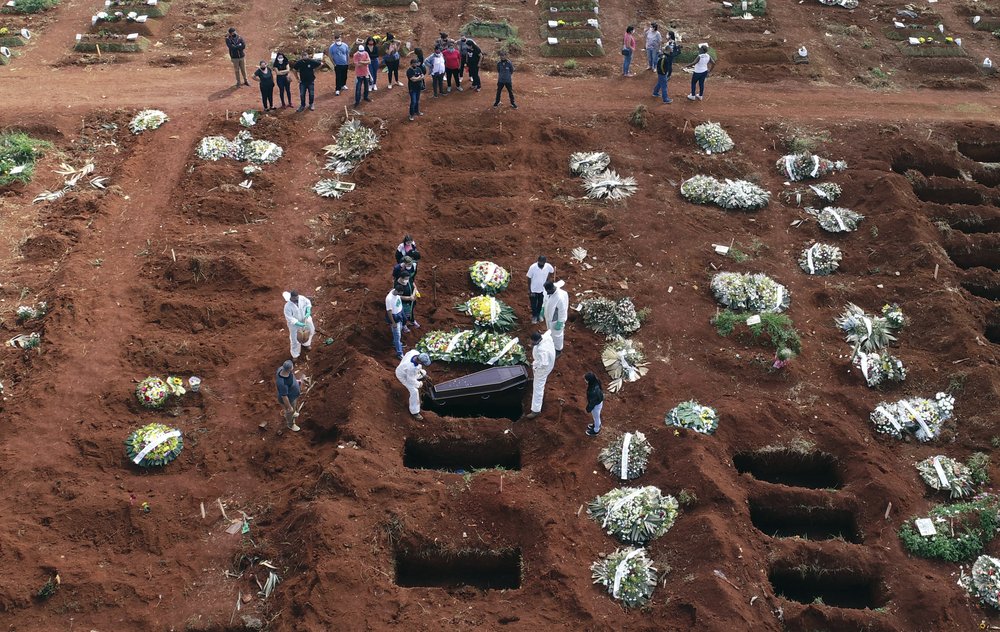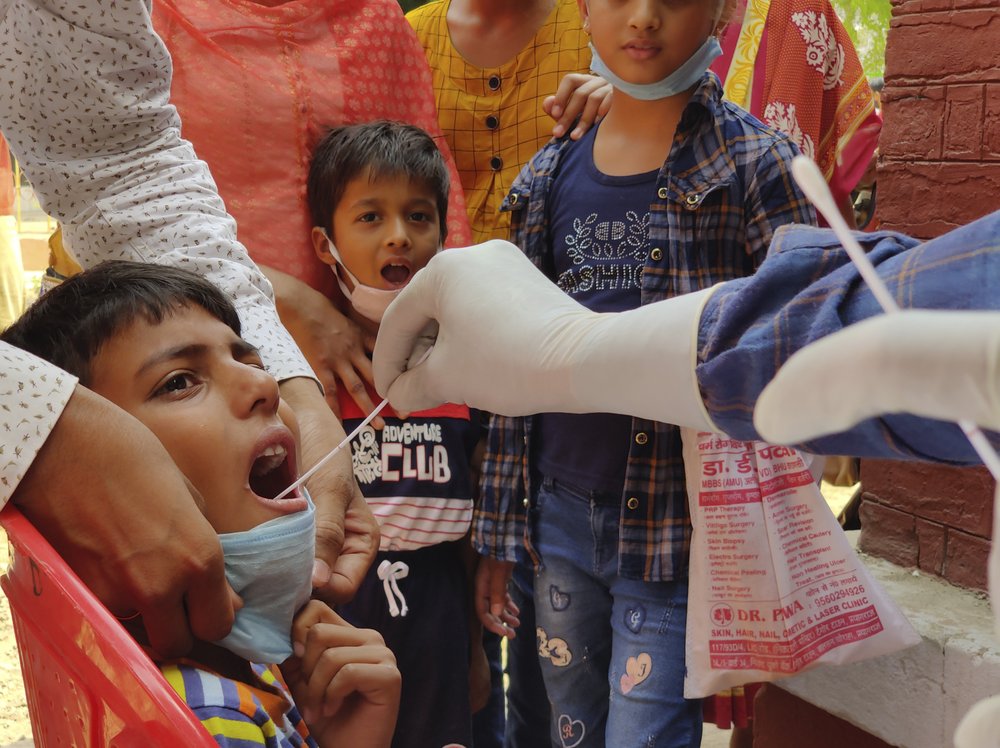
Cemetery workers in protective gear lower the coffin of a person who died from complications related to COVID-19 into a grave at the Vila Formosa cemetery in Sao Paulo, Brazil, April 7, 2021. /AP
Cemetery workers in protective gear lower the coffin of a person who died from complications related to COVID-19 into a grave at the Vila Formosa cemetery in Sao Paulo, Brazil, April 7, 2021. /AP
Nations around the world set new records for COVID-19 deaths and new coronavirus infections over the past few weeks.
Brazil this week became just the third country in the world, after the U.S. and Peru, to report a 24-hour tally of COVID-19 deaths that exceeded 4,000. India hit a peak of almost 127,000 new cases in 24 hours, and Iran set a new coronavirus infection record for the third straight day, reporting nearly 22,600 new cases.
In Brazil's state of Rio de Janeiro, emergency services are under their biggest strain since the pandemic began, with ambulances carrying patients of all ages to overcrowded hospitals struggling to care for everyone. Authorities say over 90 percent of the state's intensive-care unit beds are taken by COVID-19 patients, and many cities are reporting people dying at home due to lack of available medical treatment.
"We're already living the third wave. We have three times more calls," in comparison with previous waves, said Adriano Pereira, director of the mobile emergency care service in Duque de Caxias, an impoverished city outside Rio.
Brazil's COVID-19 related death toll has risen past 345,000, the second-highest total in the world behind the U.S., where nearly 560,000 people have been confirmed killed, according to latest data from Johns Hopkins University.
South Korea reported 700 more cases, the highest daily jump since January 5. Health authorities were expected to announce measures to strengthen social distancing following a meeting Friday.
"The fourth wave of virus infections, which we tried to avoid so desperately, seems to be coming closer and getting stronger," Prime Minister Chung Sye-kyun said at a meeting on virus responses.

A health worker takes swab sample of children to test for COVID-19 in Prayagraj, India, April 8, 2021. /AP
A health worker takes swab sample of children to test for COVID-19 in Prayagraj, India, April 8, 2021. /AP
In India, home to 1.4 billion people, only 11 million are fully vaccinated. In Brazil, less than 3 percent of the country's 210 million people have received two vaccine doses, according to Our World in Data, an online research site.
The U.S. has now fully vaccinated nearly 20 percent of its adult population, and New Mexico became the first state to get shots of 25 percent of its residents, which is still far off for the 60-percent benchmark for herd immunity.
Only 22 percent of Detroit residents have received at least one vaccine dose compared to 38 percent for all of Michigan, according to Michigan's Department of Health and Human Services.
Detroit leaders began making a plan to knock on every door to persuade people to get vaccine shots.
Indian Prime Minister Narendra Modi urged people to get vaccinated, writing in a tweet: "Vaccination is among the few ways we have to defeat the virus. If you are eligible for the vaccine, get your shot soon."
(With input from AP)

